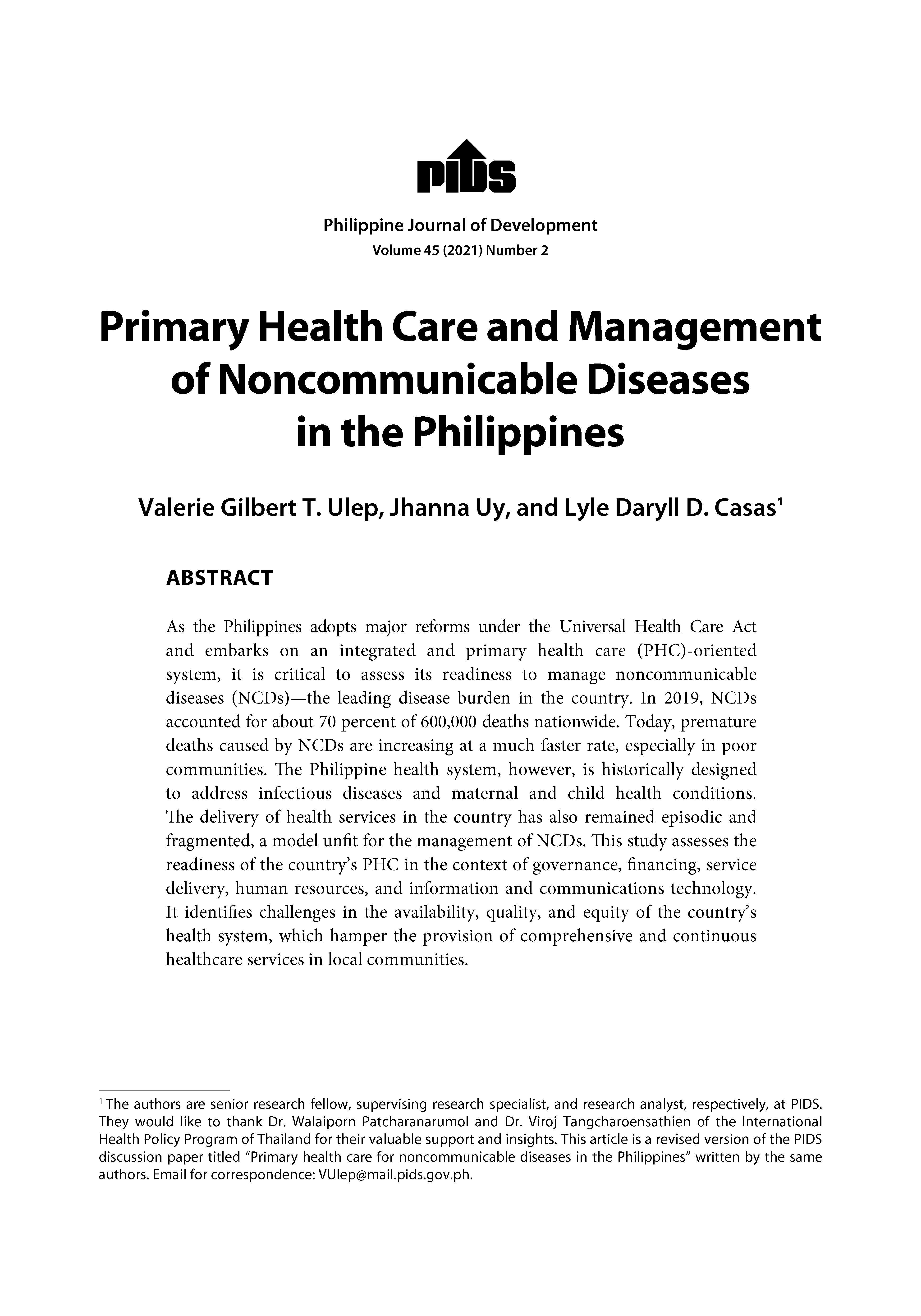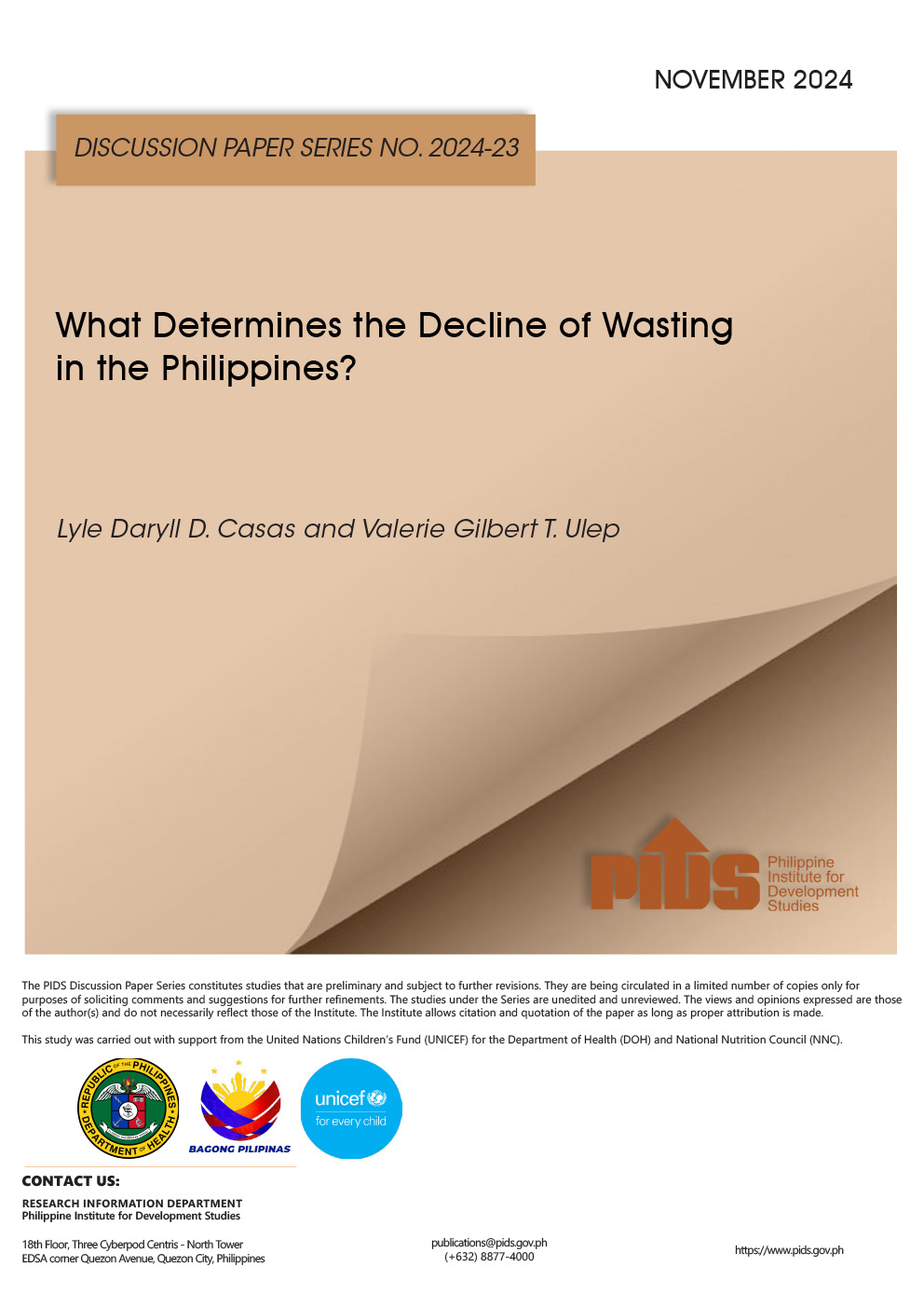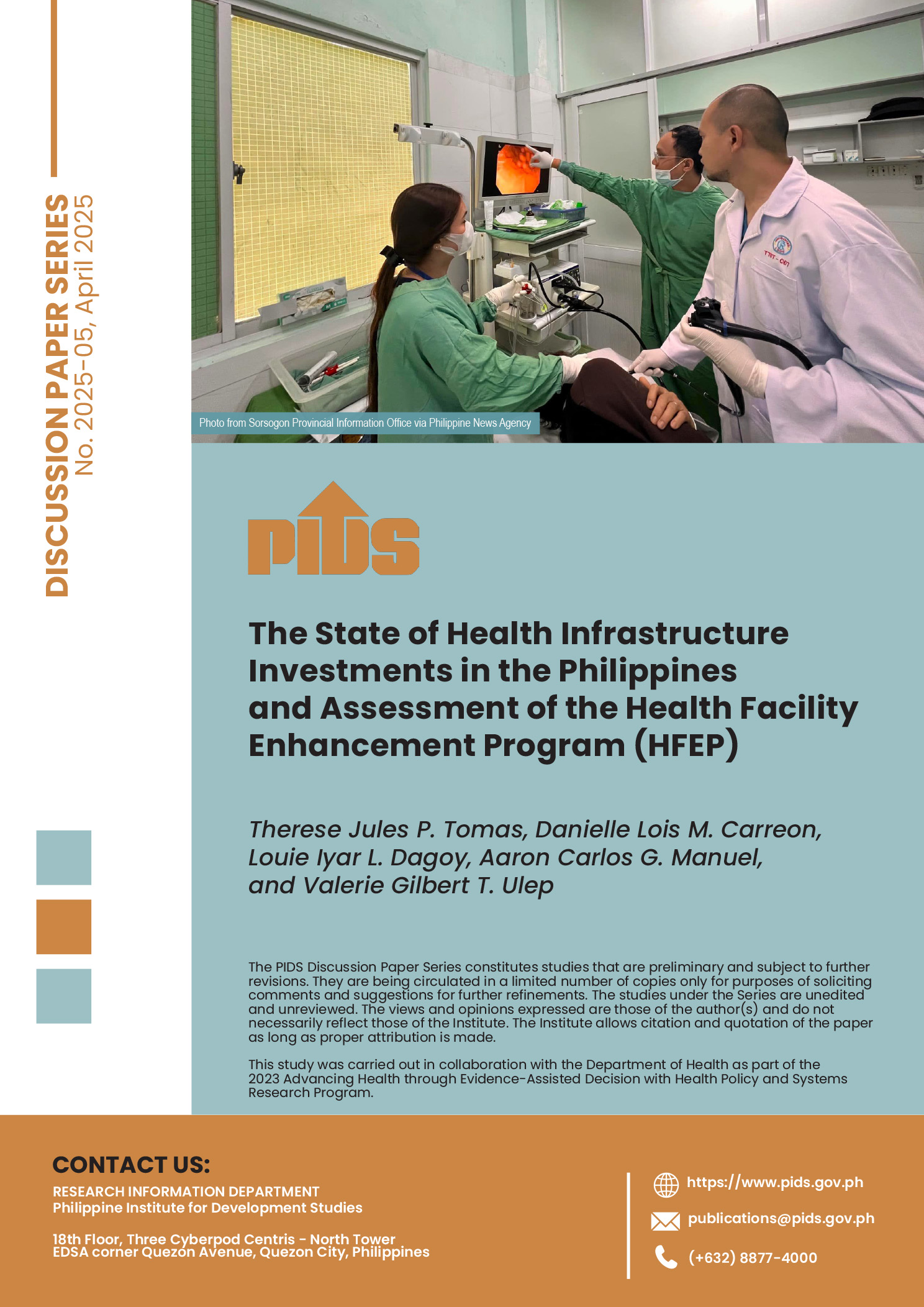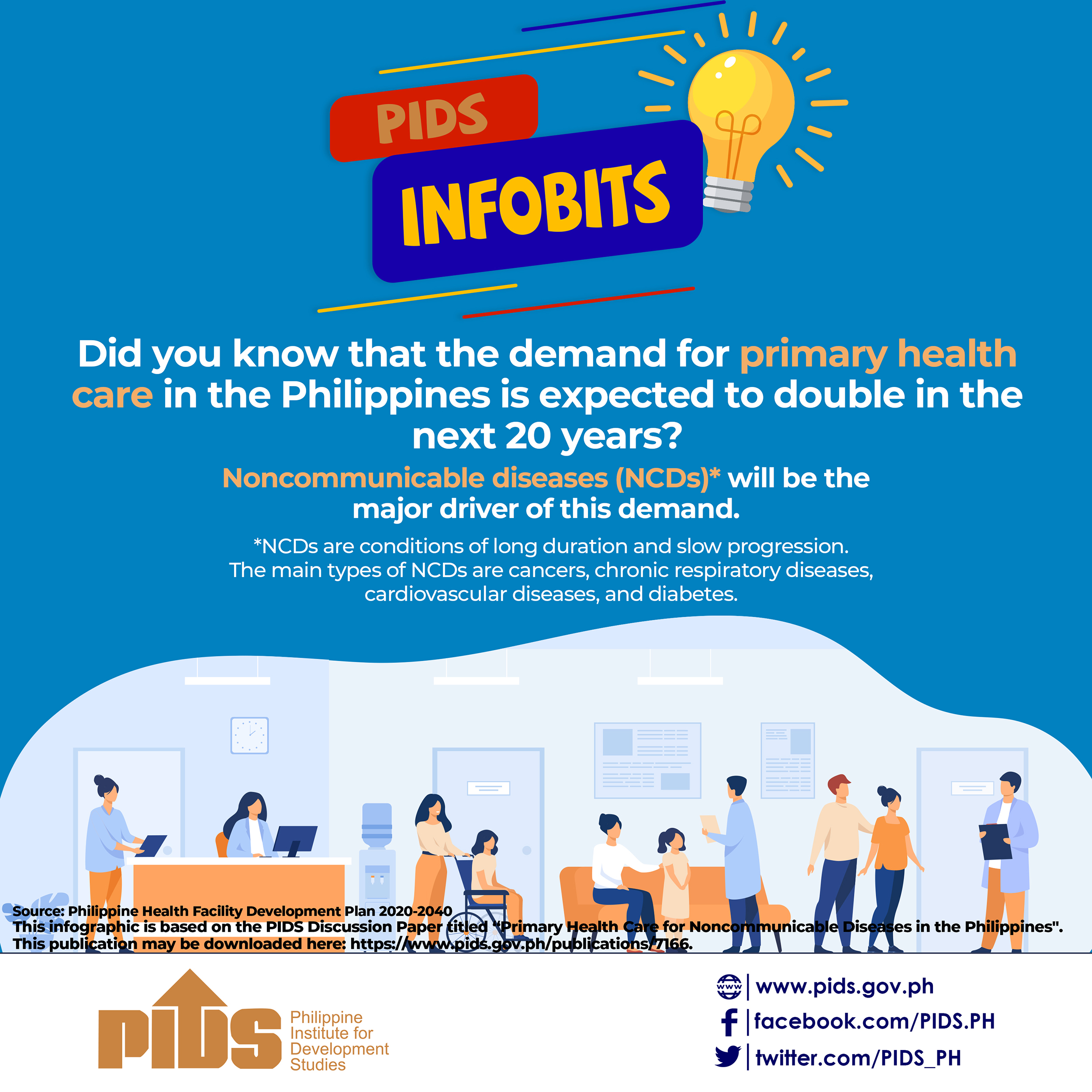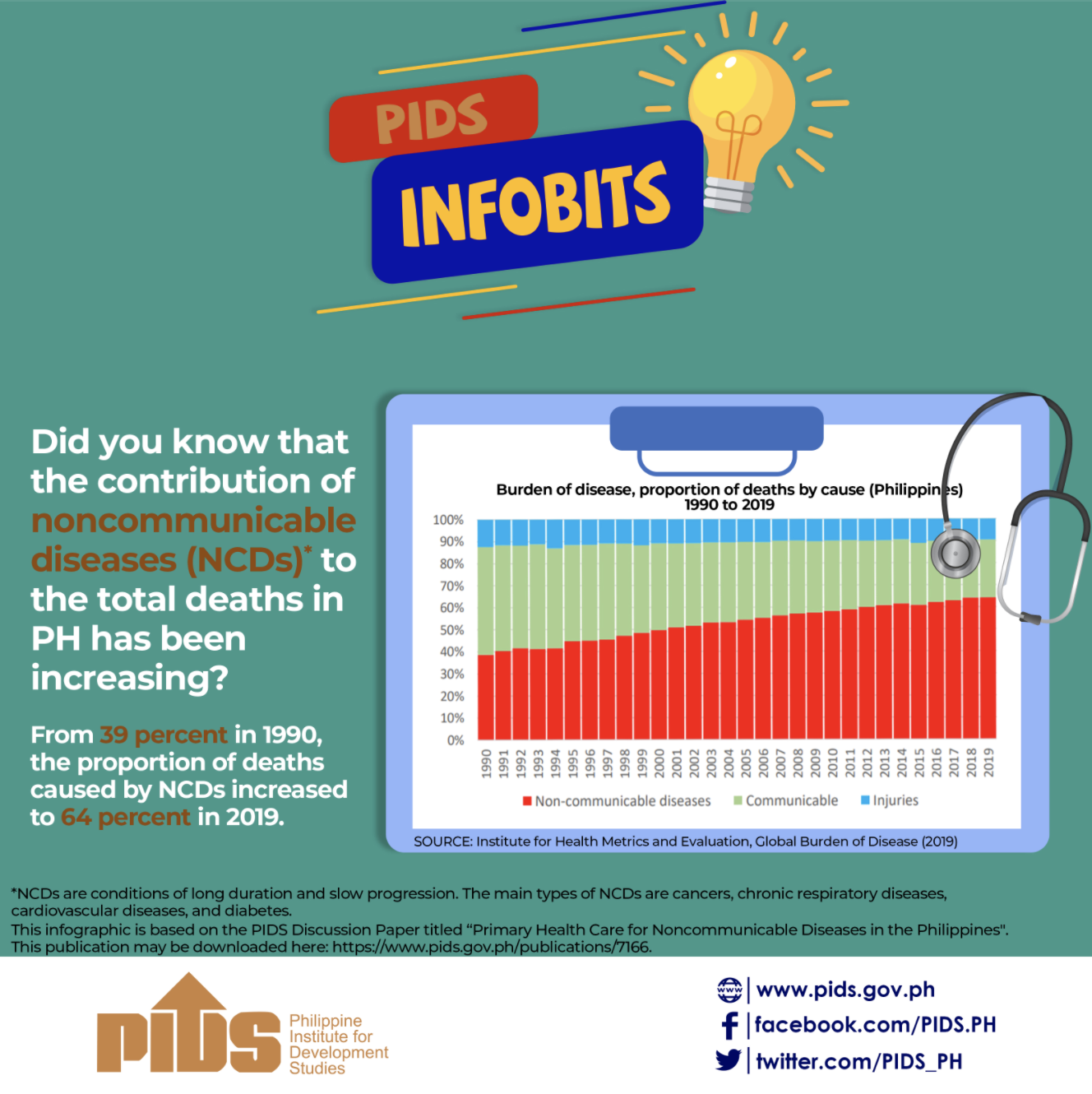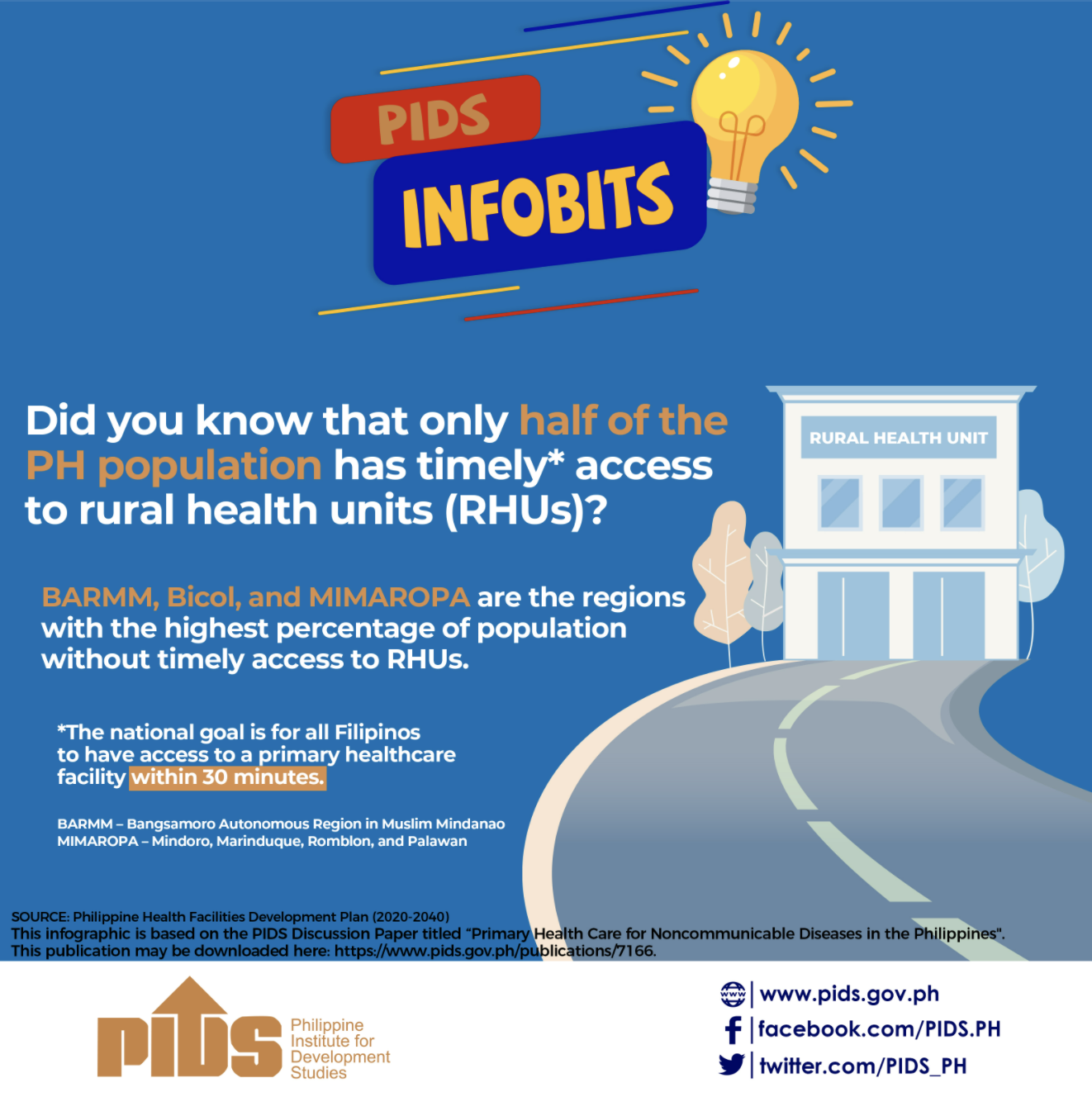As the Philippines adopts major reforms under the Universal Health Care Act and embarks on an integrated and primary healthcare-oriented system, it is critical to assess its readiness to manage noncommunicable diseases (NCDs), the leading disease burden in the country. This study assesses the readiness of the primary healthcare system to handle NCDs, in the context of governance, financing, service delivery, human resources, and information and communications technology. It identifies challenges in the availability, quality, and equity of the health system, which hamper the provision of comprehensive and continuous healthcare services in local communities.

